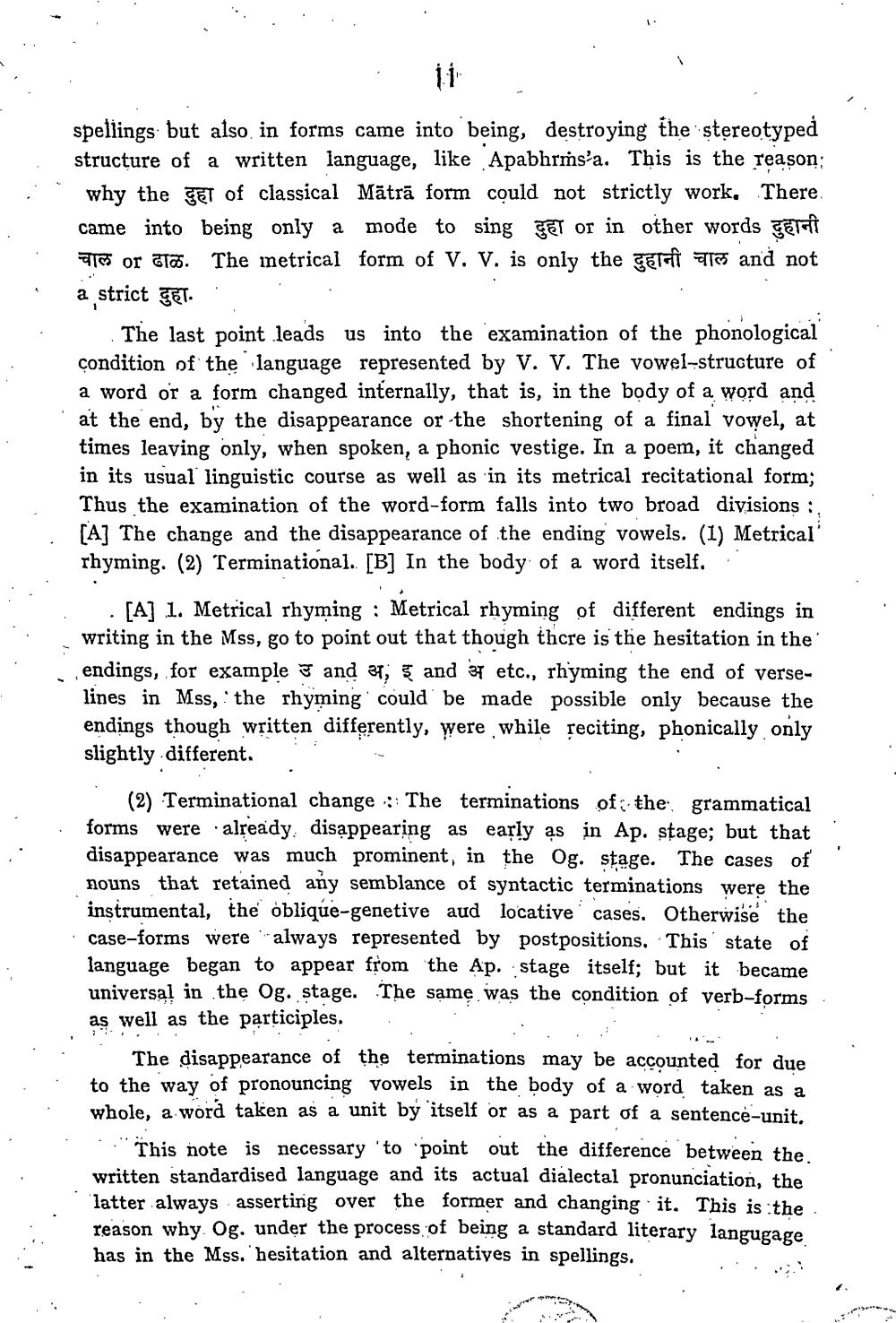________________
spellings but also in forms came into being, destroying the stereotyped structure of a written language, like Apabhrṁs’a. This is the reason:
why the SET of classical Mātrā form could not strictly work. There. came into being only a mode to sing TeT or in other words gerai ares or ca. The inetrical form of V. V. is only the gerai atras and not a strict दुहा.
The last point leads us into the examination of the phonological condition of the language represented by V. V. The vowel-structure of a word or a form changed internally, that is, in the body of a word and at the end, by the disappearance or the shortening of a final vowel, at times leaving only, when spoken, a phonic vestige. In a poem, it changed in its usual linguistic course as well as in its metrical recitational form; Thus the examination of the word-form falls into two broad divisions : [A] The change and the disappearance of the ending vowels. (1) Metrical' rhyming. (2) Terminational. [B] In the body of a word itself.
. . [A] 1. Metrical rhyming : Metrical rhyming of different endings in writing in the Mss, go to point out that though there is the hesitation in the endings, for example 5 and 3, 5 and 3 etc., rhyming the end of verselines in Mss,: the rhyming could be made possible only because the endings though written differently, were while reciting, phonically, only slightly different.
(2) Terminational change :: The terminations of the grammatical forms were already disappearing as early as in Ap. stage; but that disappearance was much prominent, in the Og. stage. The cases of nouns that retained any semblance of syntactic terminations were the instrumental, the oblique-genetive aud locative cases. Otherwise the case-forms were always represented by postpositions. This state of language began to appear from the Ap. stage itself; but it became universal in the Og. stage. The same was the condition of verb-forms as well as the participles.
The disappearance of the terminations may be accounted for due to the way of pronouncing Vowels in the body of a word taken as a . whole, a word taken as a unit by itself or as a part of a sentence-unit.
..." This note is necessary 'to point out the difference between the written standardised language and its actual dialectal pronunciation, the latter always asserting over the former and changing it. This is the reason why. Og. under the process of being a standard literary langugage has in the Mss.'hesitation and alternatives in spellings.




